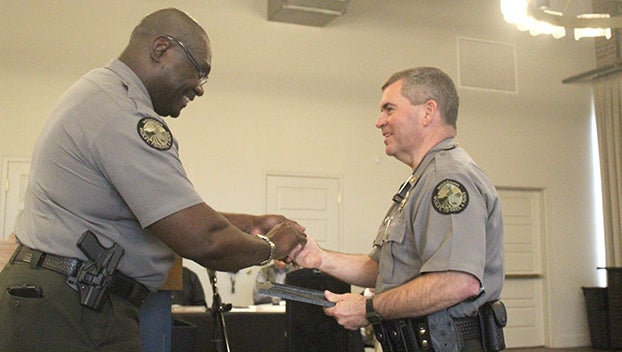City of Brookhaven sees its first West Nile case of 2017
Published 11:55 pm Friday, August 18, 2017
A Brookhaven resident has tested positive for the West Nile Virus, Mayor Joe Cox said.
Cox spoke to the Mississippi State Department of Health late Friday afternoon and then to Vector Disease Control, the company which was recently awarded the contract with the city for mosquito spraying.
“They’re going to start spraying tonight,” he said Friday. “They’ll be doing triple sprayings, three nights in a row.”
Brandon Cobb, supervisor for the Brookhaven office, said besides spraying three consecutive nights in the area pinpointed by the MSDH, they’ll also increase larval surveillance. That means they’ll be looking in standing water for mosquito larva. They’ll also be setting traps to catch the culex mosquito.
“If the numbers have not reduced, later in the week, we’ll do an aerial mission over Brookhaven,” he said. “We’ll be spraying with an airplane that can cover more area than we can reach with the trucks.”
Vector typically covers the entire city each week, but they plan to do more over the next few days.
Though the city of Brookhaven is seeing its first case of West Nile, it’s not the first in the county.
“This is the second case in Lincoln County and we’re stepping up our efforts,” he said.
Cox said a positive test can come several weeks after a person has been bitten by a mosquito carrying the virus. Also, the Brookhaven resident who tested positive could have been bitten elsewhere. That’s why individuals should take precautions at all times to protect themselves from mosquito bites.
“It’s important to take those precautions,” he said.
Cobb said anyone who goes outside should wear long pants and long sleeves and use a mosquito repellent.
It’s also important to remove the source of the mosquitoes.
“Get rid of anything that holds water around the yard,” he said. “If it can hold water, mosquitoes can breed in it, even as small as a Coke bottle cap.”
Besides the two in Lincoln County, West Nile has been reported to the MSDH in the following counties as of Thursday: Bolivar (1), Clay (1), Covington (1), Forrest (4), Grenada (1), Hinds (7), Humphreys (2), Jones (1), Leake (1), Leflore (1), Lowndes (1), Madison (3), Perry (1), Rankin (4) and Scott (1).
The peak season for West Nile Virus is July through September, although cases can occur at any time of the year.
“We are in the time of year that is most active in the state,” Dr. Paul Byers, MSDH state epidemiologist, said recently.
Symptoms of the infection are often mild and may include fever, headache, nausea, vomiting, a rash, muscle weakness or swollen lymph nodes, Byers said.
Many people may be infected with West Nile and not show symptoms, but in a small number of cases, the infection can cause serious complications, even death, he said.
In 2016, Mississippi had 43 cases of West Nile Virus reported and two deaths attributed to the illness. One death was reported in 2015, seven in 2014 and five each in 2013 and 2012.
“All folks in Mississippi need to be taking precautions,” he said.
Byers said doctors tend to see the severe complications in individuals over the age of 50, even more so over the age of 60. But the virus can cause illness at any age, he said.
“If you’re feeling the symptoms, it’s not a bad idea to seek treatment with your family medical practitioner,” he said.
Because the virus has been detected in mosquitoes throughout the state, residents in all counties should take the following precautions for protection against mosquito-borne illnesses:
• Avoid mosquitoes whenever possible.
• Stay indoors or take personal protective measures, especially between dusk and dawn when mosquitoes are most likely to feed.
• Use mosquito repellent with DEET (up to 30 percent for adults and 10 percent or less for children two years to 12 years of age.
• Remove all sources of standing water around your home and yard to prevent mosquito breeding.
• Wear loose, light-colored, long clothing to cover the arms and legs when outdoors.
• Avoid areas where mosquitoes are prevalent.





